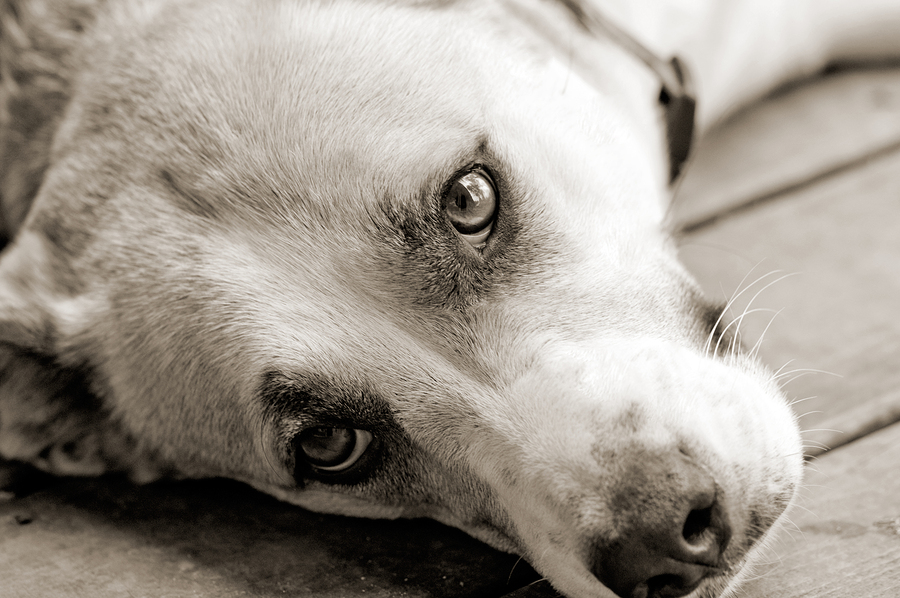Low thyroid, or hypothyroidism, can cause troubling symptoms in dogs who suffer from the condition. Here’s how I explained it to a reader.
Q: My dog has been diagnosed with hypothyroidism. What can you tell me about this disease?
A: Hypothyroidism occurs when the thyroid gland doesn’t produce enough of certain important hormones. Usually it develops when thyroid glands become inflamed (thyroiditis) or when the glands atrophy with age.
In most cases, the body’s immune system reacts by attacking and destroying thyroid gland cells, a condition called autoimmune thyroiditis. This causes thyroid glands to be less able to produce and secrete their hormones, leading to progressive and irreversible damage. The body’s metabolic rate drops, and dogs may gain weight or lose hair. We often see autoimmune thyroiditis in Doberman pinschers, beagles, golden retrievers and Akitas, but any dog can be affected.
It affects less than 1 percent of the canine population, but that still makes it the most common endocrine disease in dogs. It’s a concern in more than 70 breeds as well as in mixed breeds.
Hypothyroidism is challenging to diagnose and can be missed or mistaken for other disorders. That’s because it has a wide range of variable symptoms that are also seen in other diseases. Figuring out what’s going on requires a complete physical exam combined with several diagnostic tests and knowledge of other factors such as breed idiosyncrasies and illnesses and drugs that can influence test results.
Just a few of the common signs are thinning hair on both sides of the body or on the tail; skin that becomes dark, scaly or greasy; unusually heavy shedding; and lethargy. Dogs may feel cold all the time and seek out warm spots. Weight gain is one of the signs that may be overlooked because people associate it with aging instead of possible disease. The good news is that once diagnosed, hypothyroidism can be managed with a synthetic form of thyroid hormone given orally twice a day for the rest of the dog’s life.
Read more, including the best animal books to read this summer, in Pet Connection, the weekly nationally syndicated pet feature I co-write with Kim Campbell Thornton and my daughter, trainer Mikkel Becker.


